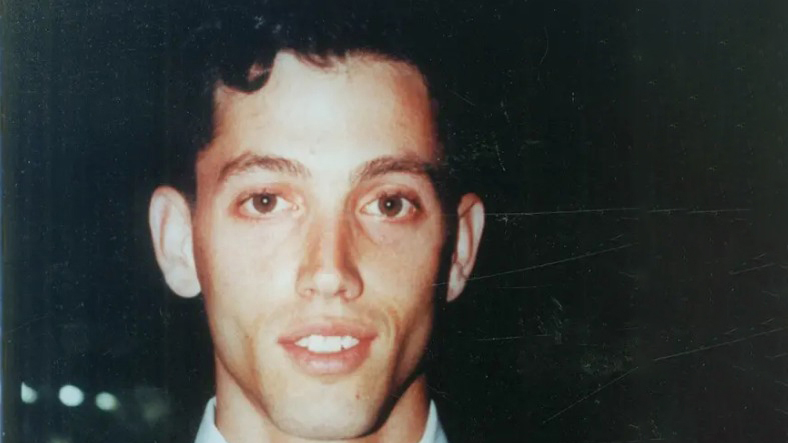
It was noon on Monday, October 30, 2000, when a terrorist entered the East Jerusalem branch of National Insurance (Bituach Leumi) and shot two security guards in the lobby. The wounded security guards were evacuated in critical condition to Hadassah Ein Kerem Hospital, where the death of one of them was determined – Esh Kodesh Gilmore, a 26-year-old student in computer science, married and the father of a one-and-a-half-year-old baby. 20 years have passed, "and to this day," says his widow, Inbal Retz Gilmore, "I discover new things about him."
Inbal has since remarried, and had three more daughters. She holds a master's degree in American Jewish studies, is an interior designer by profession, is active in community organizations and is a board member of the nonprofit My Truth, which creates platforms for IDF reservists to tell of their first-hand experiences.
She told Davar about Esh Kodesh’s life, about their daughter Talia, now a soldier in the IDF, and about how she continued to live after his death.
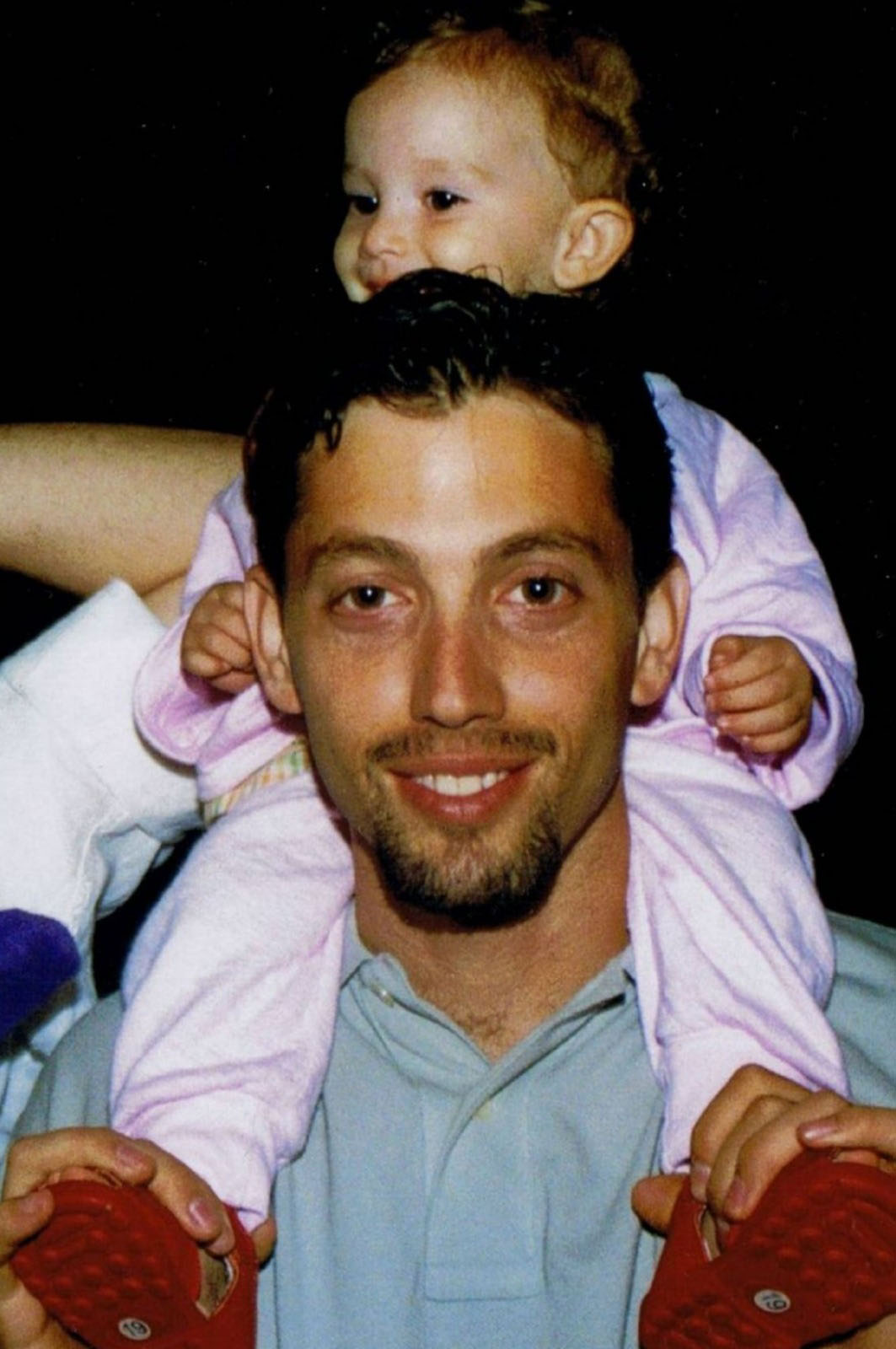
"We met in Jerusalem in 1993, through a match-making friend. He was in the army, I was in national service. I discovered a unique guy, in ways that suited me very well.
"On the one hand he was a fighter, a tough Golanchik [in the combatant Golani unit], and on the other hand, he was deep. A man with whom one can have heart-to-heart, emotional conversations, sensitive, a feminist – even though he would not have used this term. This was evident in his deeds, in the way he saw me, his mother, his sisters. His worldview saw no difference at all. He saw women as partners in everything.
"As a young girl, I felt it was a very special thing. A Golanchik fighter who despises IDF machismo. Two sides in one person – on the one hand a warrior, on the other, a gentle soul. To me it was magic. Real magic. I had a very easy time talking to him, we had a lot of deep conversations. We got married in 1997, Talia was born two years later, we only had time to be married for three years.
"His name is very special. I called him Kodesh. His parents are Americans who became religious. His father studied a book called 'The Book of the Holy Flame', became enthusiastic and decided to call his eldest son Esh Kodesh (Holy Flame). When he grew up, his father gave him his blessing to change the name, But Kodesh refused, saying that he carried his name with pride, and he did carry it with great power.
"He was in many ways such a flower child, growing up in Moshav Mevo Modi’im in the home of really loving and sweet American parents. He was the eldest of six siblings. In his childhood, you could see the athletic, sporty, outstanding, strong boy, a taekwondo fighter, a popular boy. On the other hand, among his friends you could find children no one saw, the rejected.
“He was humble and despised the whole culture of brands and 'who has more'. He made deep connections with people that others did not see. He loved his friends.
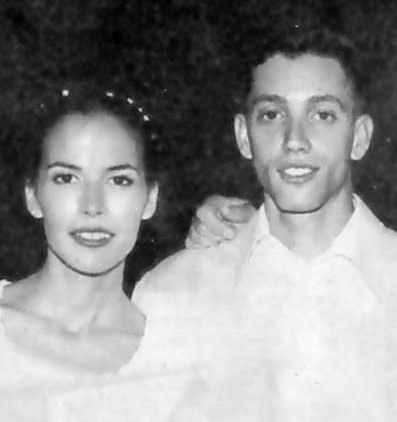
"In the army, he served in Lebanon, in a Golani platoon. He really liked the army. At the shiva, we heard stories of courage, of camaraderie and friendship. We were told that soldiers in a young team who had to embark on their first ambush, said they were scared, that they felt too inexperienced. So Kodesh said, 'Give me a minute, I'll put on my gear and go out with you.'
“Just a few days ago, someone brought up a story for the first time, about a team that went into action and their military vehicle got stuck at night, and it could not be repaired. They left two young soldiers to guard it in the field, and Kodesh, who was older and more experienced, took another soldier and stayed with them. They felt safe with him. The guy who told it said that the story has stayed with him all these years. A story of an older, more experienced soldier that they didn’t know, who immediately volunteered to stay with them and guard the vehicle until morning.
"Kodesh was a computer science student in his project year, working as a security guard at the National Security branch where he was murdered. He was already in job interviews for high-tech companies. If he had finished his screening processes at one of the companies earlier, we could have found ourselves in a completely different story. After the murder, we continued to receive invitations for job interviews at high-tech companies.
"He was killed by a terrorist from the Fatah cell, the presidential guard of Yasser Arafat, who decided to carry out a strategic attack in the east of the city. They marked the National Security branch that serves the Arab population in East Jerusalem. This is a population that Kodesh worked with on a daily basis and always brought him joy, and he them. Because it was impossible not to. He was a gentle and noble fellow.
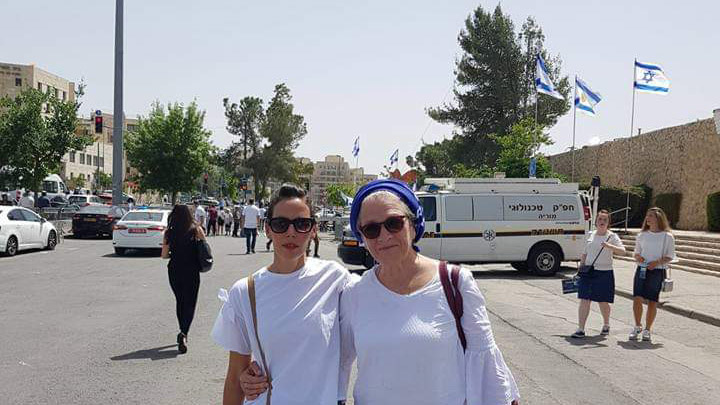
“After enough time had passed, we talked about Kodesh and people shared childhood memories of him. Funny and sad things. His brothers told of what kind of eldest brother he was. And his younger brother, who was 4 years old when Kodesh was murdered, and later also enlisted in Golani, said that when they came to tell the family, his parents came to lunch to pick him up at daycare. His mother held him and trembled. She handed him to his father, and he asked, "Why is Ima crying?" What's wrong? So they told him that Kodesh had been killed, and he said, ‘No, it's not possible. He's a superhero, he cannot die.’ It was sad to hear that, Talia was sad too.
"It was very difficult not to hug his parents [during corona], we are very close to them. We all came home in pieces, Talia also broke down, because new stories came up that we hadn’t heard before, and she does not remember her father herself, she was a baby. He did not raise her but she is very very similar to him, both physically and in character, similar to him in many ways. It’s amazing to see it.
"Later, at home, I knocked on her door to see how she was. I opened it, and she said to me, 'Mom, I'm on a video call.' When she finished I said to her: 'I wanted to see how you are', and she told me that she had to check on her chanicha, a girl on the spectrum, to whom she became very attached a few years ago at 'Wings of Wind' – a summer camp for children with disabilities. I do not know where her strength came from, but the first thing she did when we returned was a video call with a chanicha. This is the daughter of Kodesh. It’s like he's here and raising her. That’s exactly how he was.
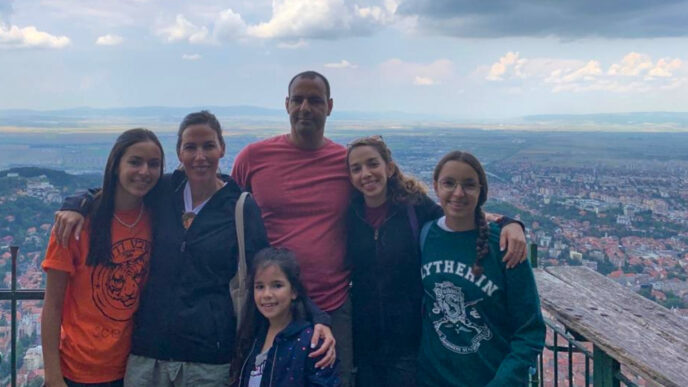
"Ofer, my husband today, is really a great man. He got not only a widow and her daughter, he got a family of a murdered man. It was a package deal, an integral part of me. He received Kodesh’s family as our family, which is not obvious.
“There are many families who find it very difficult to manage this thing, and for us it was clear, because it was the most important thing to Kodesh – family, his parents, his sisters and brothers. It was clear to me that wherever I went, they were going with me. They will never feel left behind, never feel they have no access to Talia, their granddaughter. They will never feel like they are not a part of my life. Luckily they are such wonderful and beloved people, that it makes it easier.
"Apart from Talia, we have three other daughters, and to see Ofer raise Talia is truly amazing, exciting and powerful. For Talia, he is her father. Talia has two fathers, she knows and feels it. For Ofer's parents, she is their granddaughter. It’s lovely to see this.
"Ofer, too, is a Golanchik, very tough. Every Yom Kippur, before going out to the synagogue, he blesses the girls and begins with Talia. Year after year he fails to say the words. He does not cry, he is very containing, very good at coping, but this is a place where he fails.
I once asked him, Why do you break down at this point? ' So he said to me: 'Every year, in this moment when I bless her with all the important blessings, I tell myself that her father should have been here to bless her.'
"When Talia was younger, she would look at me and signal with her eyes: Dad is starting to cry. And Dad did. And she would smile at him and say to him: 'Well Dad, can’t you finish the blessing?' For the past two years, she has been joining him in tears, and they both stand and sob. And he still fails to finish the blessing. It is actually a very special relationship between father and daughter, within this thing, within the bereavement.
"Even though it is sometimes complicated for us in our small country, even though the country challenges us, we still feel blessed, and that is something that is in line with the values and worldview of Esh Kodesh – to try to see the good in all the difficulty, and to be conscious of the good.
“Despite the pain and despite the disappointment at times from the way things are going in the country, we still feel blessed. We live here. We strive to repair things together. And this is for the memory and honor of Kodesh. "






